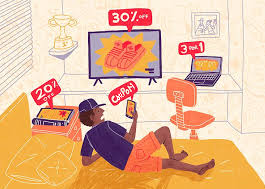
Pain today
This is the subtitle of the book: “The Palliative Society: Pain Today” by Byung-Chul Han, which outlines the new control that reigns over minds: “Be happy is the new formula of domination” (p. 26).
Society: Pain Today” by Byung-Chul Han, which outlines the new control that reigns over minds: “Be happy is the new formula of domination” (p. 26).
It’s not just rulers or local authorities who proclaim this, churches and coaches also promise this, they are the new sellers of illusion, parents want to prevent their children from frustration and difficulties: “my child won’t go through what I went through”, “I want to give them every assistance and comfort”, but life is made up of frustrations, obstacles and setbacks.
Positive psychology wants to avoid any change: “not revolutionaries, but motivation trainers take the stage, and take care that no discontent [Unmut] arises, but no anger [Mut]” and Byung-Chul Han recalls a relevant historical fact: “On the eve of the world economic crisis in the 1920s, with its extreme social oppositions, there were many workers’ representatives and radical activists who denounced the excess of the rich and the misery of the poor” (pg. 28). 28), pointing out that the word “mut” in German is also courage, so as not to confuse the translation anger with hatred.
He reminds us that “social media and computer games also act as anesthetics” (p. 29), asking a young man why he uses computers so much, he replied “I relax”, but this is the counterpoint to a society of anxious, immediate, depressed and self-centered people.
The essence of this type of “happiness” is objectification: to buy a new piece of furniture, a new car, to change their house, to have an advanced cell phone and, for the poorest, a pair of branded sneakers or a designer shirt; if this is impossible, they will choose idols that embody “thinghood”.
While “true happiness is only possible if it is broken. It is precisely pain that protects happiness from objectification. Pain carries happiness. Painful happiness is not an oxymoron. All intensity is painful. Passion links pain to happiness” (Han, 2021, p. 31).
And there is no greater pain than giving oneself to others, George Bernanos wrote: “Knowing how to find joy in the joy of others is the secret of happiness, French writer and journalist at the beginning of the 20th century, he was a soldier in the French resistance in the Second World War and wrote ‘France against robots’ and ‘Dialogues of the Carmelites’ which is a kind of ‘reverse mysticism’.
For the Greeks, the good life was not a state, but a continuous quest, which they defined as happiness, but they did not abandon contemplation, wisdom and reason in order to live well.
“The society of survival loses all meaning for the good life. Even enjoyment [Genuss] is sacrificed to health elevated to an end in itself” (pg. 34), so what it actually leads to is a painful life of striving for survival, at least for the average person, although of course there are exploiters, millionaires and the powerful who also eagerly seek profit and a ‘happier’ survival.
Han, B.-C. (2021) A Sociedade Paliativa: a dor hoje. Brazil, Petrópolis, RJ: Editora Vozes.









